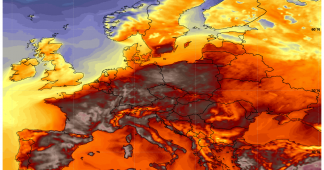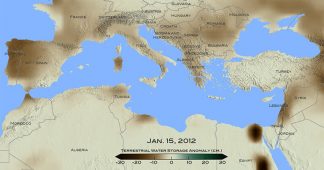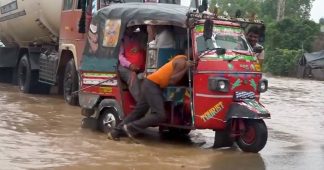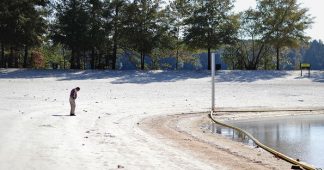9 July 2019
Agriculture is already affected by an ongoing draught in Germany, but what about personal water supplies? Experts weigh in on what can be done to minimize the problem.
Turn on the tap – and nothing comes out? Around Germany most people know this only from burst pipes or repair work. But in the second dry summer in a row – and following record-breaking temperatures in June – regions like Lusatia in the eastern German state Brandenburg face a problem: If it continues to rain so little, water supplies could become scarce.
This is completely new for Germany, which has led authorities to look to places like California and China which have been grappling with drought for a long time.
“So far, water stress has not been a relevant issue for us,” says Jörg Rechenberg, a water expert at the Federal Environment Agency (UBA).
“The noticeably prolonged drought in the summer of 2018 makes not only scientists and authorities, but also the general public, aware that water scarcity is a problem or can at least become one. Distribution disputes, for example between water suppliers and agriculture, are already foreseeable.”
The situation cannot be overlooked: the Elbe and Oder rivers running through eastern Germany carried so little water, even before the start of summer, that sandbanks and rocks were left exposed.
In the middle of Magdeburg, ships could no longer moor at the beginning of July; in Dresden, freight traffic on the water was no longer possible as the Elbe River lost 50 centimetres of water in three days.
‘Lakes and ponds are drying up’
Drought is also posing a problem for nearby agriculture. The local cooperative Heideglück Sprotta reported a 50 percent loss of corn due to “fields as dry as the desert,” farmer Karsten Ittner told BILD.
“We can’t even plow because the surrounding villages would sink under clouds of dust,” he added.
Dr Andreas Marx of the Central German Climate Office feels there’s little hope for improvement in the region.
“The soil has already dried up to two metres deep,” he said. “The drought of 2018 never stopped due to low precipitation in winter and spring. The need is highly dramatic in the forests, where the most aggressive tree pests are eating their way through. Even lakes and ponds are drying up.”
According to the Brandenburg Ministry of the Environment, the storage facilities in Lusatia normally hold 88 million cubic metres of water reserves. But now there are only 58 million left.
Consequently, in Cottbus farmers and garden owners are not allowed to pump water from rivers, lakes or ditches between 6 am and 9 pm on Sunday.
In Lower Saxony, the drought has also become a big issue: in 2018, farmers experienced a 22 percent loss in agriculture, according to DPA, and are not expecting better results this year.
Read more at https://www.thelocal.de/20190709/











